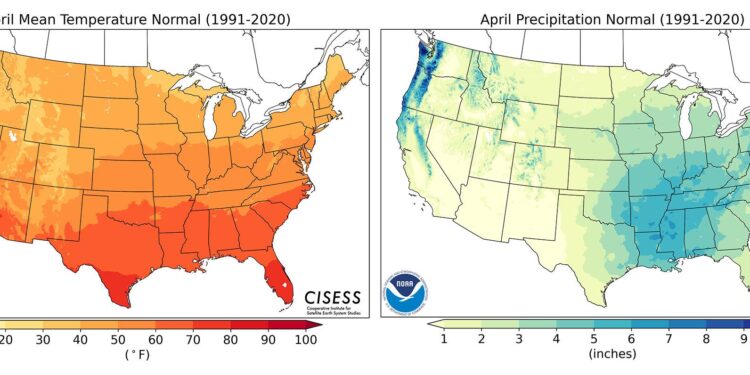Accessibility Crisis of U.S. Climate Data Websites: A Growing Concern
In a concerning turn of events for climate research and public understanding, numerous essential U.S. government websites that provide climate data have become inaccessible. This situation has left both researchers and the general public struggling to obtain vital information as worries about climate change escalate. The closure of these crucial resources hampers efforts to track environmental changes, guide policy-making, and foster meaningful discussions regarding the future of our planet. This alarming trend prompts serious considerations about transparency, data availability, and its effects on ongoing climate studies during an already fragile global scenario. In this article, we explore the origins of these websites, the potential consequences of their unavailability, and the broader implications for climate data transparency in America.
U.S. Climate Data Websites in Crisis as Environmental Issues Mount
The accessibility of climate-related information has emerged as a pressing issue amid rising environmental concerns throughout the United States. Various federal and state agencies that previously acted as key sources for climate data are now facing accessibility challenges due to shifts in policy, budget reductions, and technical failures. This trend poses significant risks to research efforts, limits informed public discussions on environmental issues, and undermines initiatives aimed at addressing climate change effectively. For example, platforms such as the National Oceanic and Atmospheric Administration (NOAA) and The Department of Energy (DOE) have experienced frequent outages while also being slow to refresh their datasets—leading to frustration among scientists, policymakers, and citizens alike.
The ramifications of this accessibility crisis include:
- Loss of Critical Data: Researchers may find themselves without access to essential long-term datasets necessary for accurate modeling.
- Lack of Public Awareness: Citizens may remain unaware about local climatic threats or strategies available for mitigation due to limited access.
- Difficulties in Policy Formulation: Policymakers may struggle with creating effective regulations without reliable data at hand.
The table below highlights a notable decline in dataset availability across major climate platforms over recent years:
| Year | Total Datasets Available | Status Accessed | ||||||
|---|---|---|---|---|---|---|---|---|
| 2021 | 1,200 | Fully Operational | ||||||
| 2022 | 850 | Intermittent | ||||||
| 2023 | 400 | Mostly UnavailableEffects on Research Efforts & Policy-Making Amidst Vanishing Climate DataThe sudden loss of critical online resources dedicated to climate data presents a substantial threat not only to scientific inquiry but also affects policy-making processes aimed at addressing global warming challenges. Researchers depend heavily on publicly accessible datasets for analyzing trends; making predictions; developing actionable solutions; all crucial steps toward mitigating adverse climatic impacts. The absence or unavailability of these resources creates significant gaps affecting various fields such as climatology , ecology ,and health sciences . Without accessible information ,scientists face obstacles tracking evolving climatic patterns or crafting evidence-based interventions . This lack extends beyond academia into realms where decision-makers rely on solid evidence when formulating environmental policies . Insufficient reliable information can lead policymakers astray when attempting efficient resource allocation or establishing effective regulations . Consequently ,this could result inefficient disaster preparedness plans while diminishing prospects successful interventions against changing climates . Key areas vulnerable include :
Actionable Strategies: Restoring Public Access To Climate Information Effectively!As multiple platforms offering valuable insights into climatic conditions face shutdowns reduced functionality immediate measures must be taken ensure uninterrupted flow critical knowledge reaching wider audiences! Here are some proposed strategies: |










